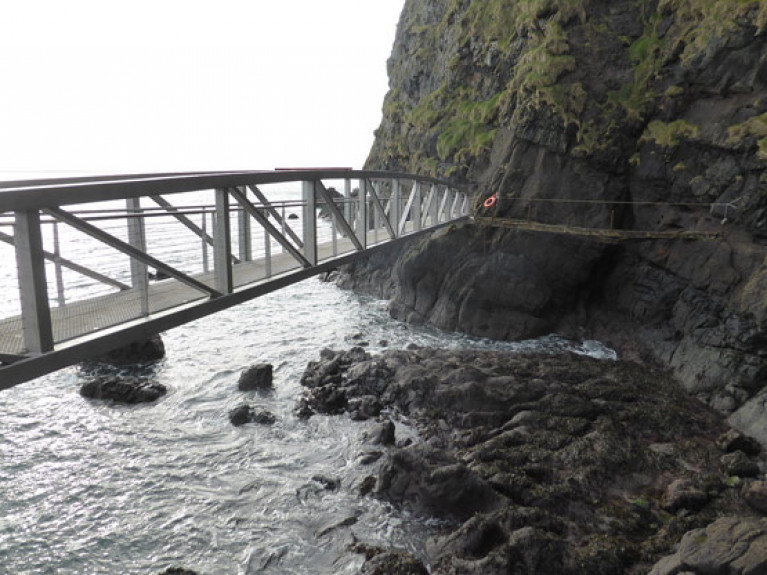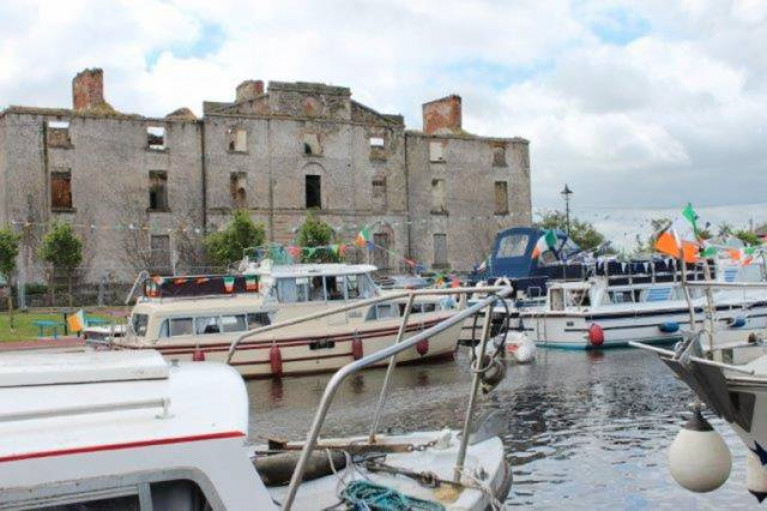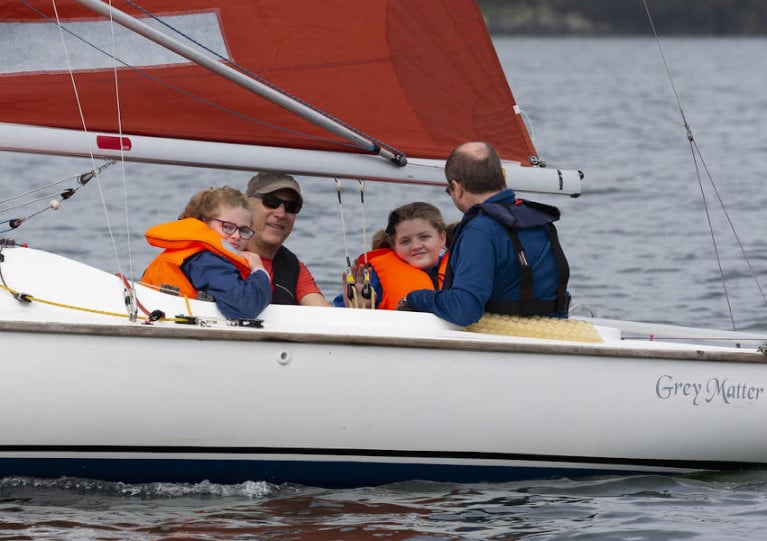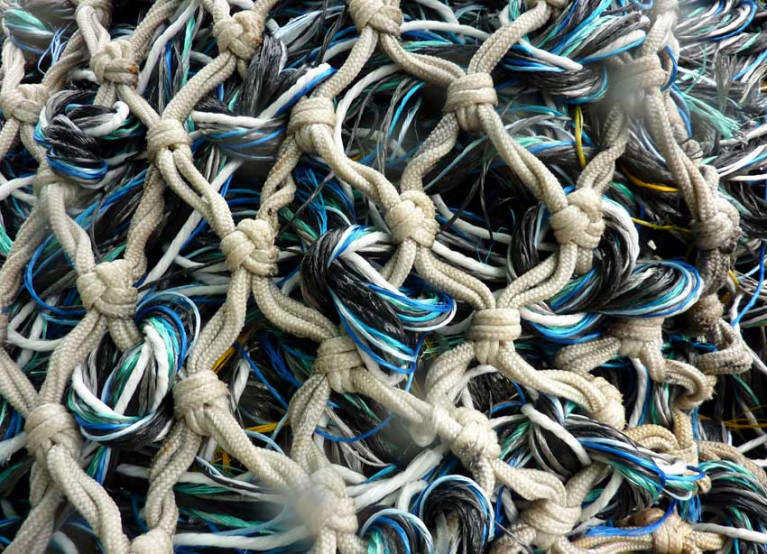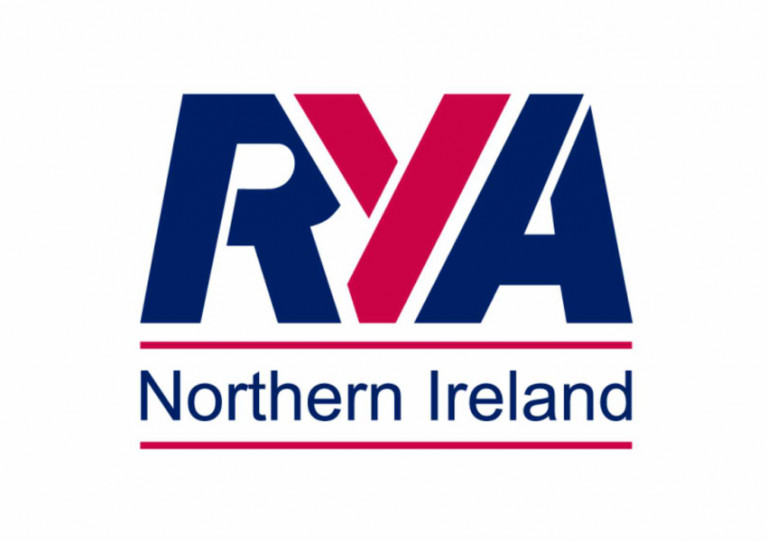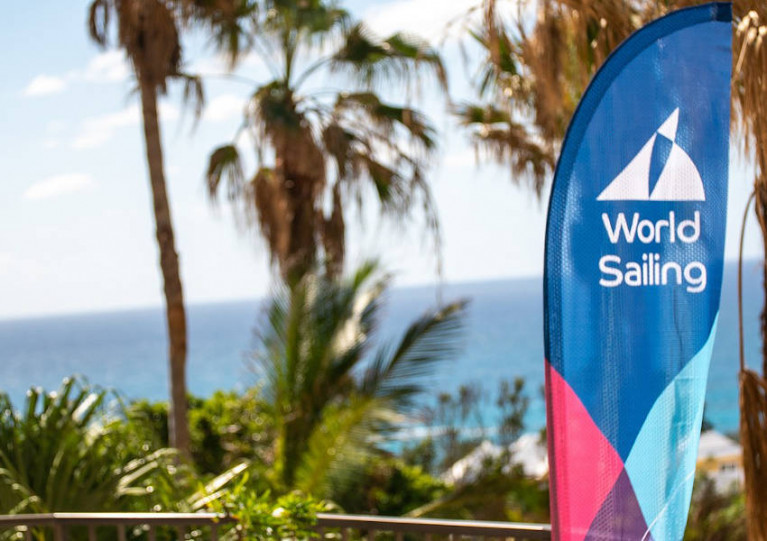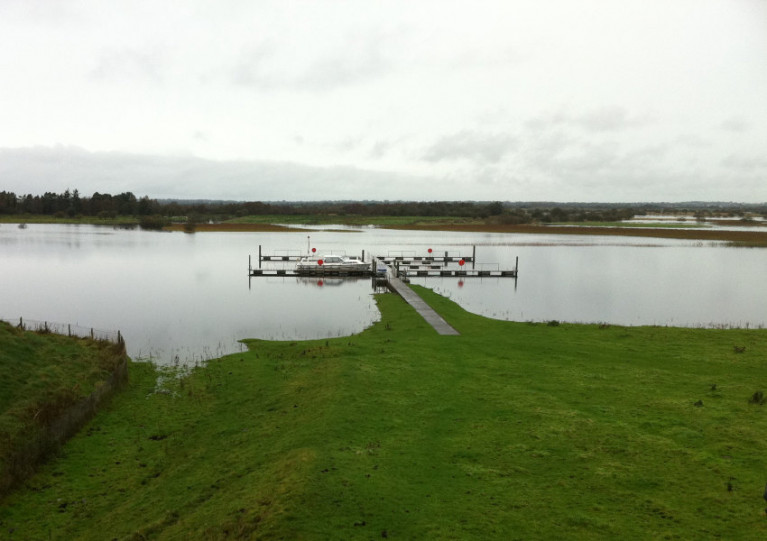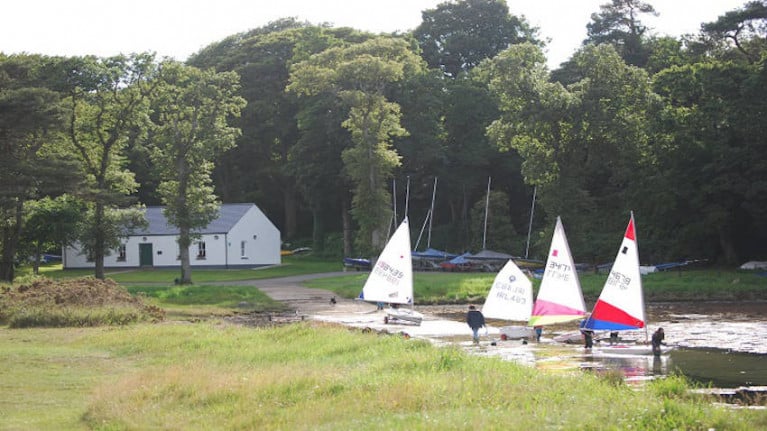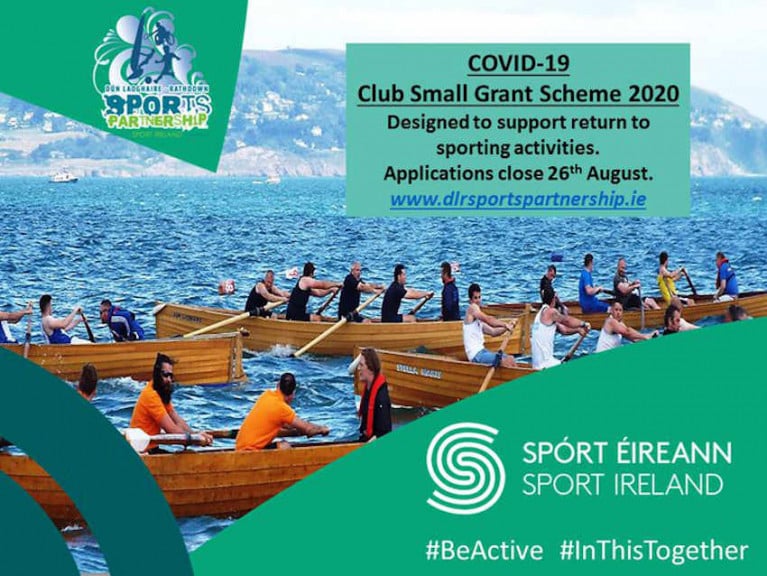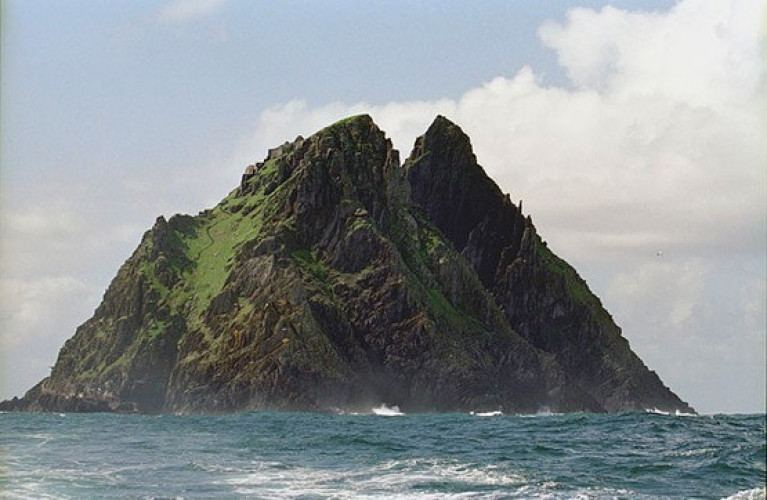Displaying items by tag: Coronavirus
Gobbins Cliff Path Reopening With Covid-19 Safety Upgrades
Co Antrim’s famous coastal path at The Gobbins is set to reopen next week on Tuesday 1 September. months after it was closed in the initial wave of coronavirus restrictions in Northern Ireland.
As RTÉ News reports, the cliff path — which was restored in 2015 after being closed for decades — has had a number of safety upgrades to allow for social distancing and hygiene standards to fight the spread of coronavirus.
Prebooking is also essential to allow for proper management of the popular Islandmagee attraction, renowned for its white-knuckle series of rugged steps, tunnels, caves and bridges.
Jetties Reopen On Shannon Navigation After Lifting Of Restrictions On Laois & Offaly
Waterways Ireland’s jetties have reopened at Clonmacnoise, Shannonbridge, Shannon Harbour and Banagher on the Shannon Navigation following the lifting of coronavirus restrictions on counties Laois and Offaly.
Meanwhile, visiting moorings on the Grand and Royal Canals, Barrow Navigation and Barrow Line in Co Kildare will remain closed as restrictions remain in place for the county for another two weeks.
Waterways Ireland said it strongly encourages people to strictly observe social distancing measures throughout its network of inland waterways.
“We are asking our users not to congregate, to keep moving, and allow ample space for others to pass in accordance with social distancing protocols,” it added.
Elsewhere, weed cutting operations are under way at Portna and Movanagher on the Lower Bann from today, Monday 24 to Friday 28 August.
Boaters in these areas are advised to approach with caution, reduce speed and follow any instructions or signage.
On Lough Derg, water users are advised to proceed with caution in the vicinity of Goat’s Road as the green E Buoy is currently off station at Bellvue Eoint.
And the public mooring at Leitrim village has been closed for a Garda investigation into a tragic incident in the early hours of Sunday 23 August.
Alternate moorings are available below the bridge in Leitrim village and at Lock 16 on the Shannon-Erne Waterway.
Watersports Inclusion Games Cancelled Over Coronavirus Concerns
This year’s Watersports Inclusion Games, which had been set for 5-6 September at Lough Derg Yacht Club, have been cancelled over continued coronavirus concerns.
In a statement, Irish Sailing said that “the current trajectory of the virus spread, coupled with the logistics, people involved and format of the event brought us to this decision”.
Ireland’s national governing body for sailing expressed its thanks to all “who worked so hard in trying to bring this year’s Inclusion Games to fruition”.
Lough Derg YC will instead host next year’s games, being planned for 18-29 June 2021.
The news follows the cancellation of the Women at the Helm Regatta later this month over similar concerns.
Supertrawlers spent almost twice as much time fishing in the UK’s protected waters in the first half of this year than in the whole of 2019, according to an investigation by Greenpeace.
As the Guardian reports, supertrawlers spent 5,590 hours fishing in 19 of the UK’s marine protected areas between 1 January and 30 June this year.
Much of that time overlapped with coronavirus restrictions that saw most of the UK’s regular fishing fleet confined to port with the collapse of their biggest markets.
And the figure also represents a massive increase in the 475 hours in total fishing of protected areas recorded just three years ago, as the Greenpeace data reveals.
The news follows fears of “skirmishes at sea” from Rockall to the English Channel in the event of a no-deal Brexit when the Irish fleet moves to asserts its “moral right to greater access to its own waters”.
The Guardian has more on the story HERE.
RYANI has has issued new guidance which allows for sailing and racing for people from different households in Northern Ireland waters.
The guidance has been developed within the current coronavirus legislation and follows the parameters now also in place in England.
It is based upon an assessment of team sports, feedback from the Sport NI Expert Panel and the mitigations required to lower the risks of virus transmission in multi-crewed boats.
The guidance does not include those at a ‘Learn to Sail’ level, which means only proficient sailors can crew with different households.
The move comes two months after many single-handed or single household sailors got back afloat.
RYANI chief operating officer Richard Honeyford said the governing body “strongly believes that the highest risk will often be before and after going afloat”.
‘It remains vitally important that the boating community continue to take a considerate and responsible approach’
He explained: “The new RYANI guidance on sailing and racing with participants from different households during Covid-19 that has been published today (Friday 14 August) outlines the ways in which skippers and participants should review risk and how they might mitigate against that risk in a team environment.”
The guidance highlights the increased risk of certain on-board activities such as rigging, hiking out or two-person winch operation.
It also recognises that while social distancing of two metres may not always be possible onboard, it should always be possible to maintain a minimum separation of 0.5m and outlines other mitigations that should be considered.
Honeyford added: “It remains vitally important that the boating community continue to take a considerate and responsible approach, assessing the risks and following the appropriate mitigating actions.
“We must all play our part and respect any measures that our clubs deem necessary to put in place to allow multi-crewed craft afloat.”
World Sailing AGM & General Assembly Moving Online Only For 2020
World Sailing has announced it will hold its 2020 Annual General Meeting and General Assembly online only due to the global challenges caused by the coronavirus pandemic.
Abu Dhabi in the UAE had been scheduled to host World Sailing’s annual conference from 24 October, with the AGM and General Assembly concluding the meeting on 1 November.
However, due to ongoing travel restrictions, World Sailing’s board of directors have now resolved to hold the AGM and General Assembly electronically, in accordance with a written special resolution approved by its member national authorities in June.
In addition, all commission, sub-committee, committee and council meetings that would normally take place during the conference will also be hosted electronically.
Abu Dhabi will instead host the 2021 Annual Conference and AGM from 20-31 October next year
Subject to approval by World Sailing’s council, the main decision-making body of World Sailing, Abu Dhabi will instead host the 2021 Annual Conference and AGM from 20-31 October next year.
World Sailing’s election committee is now accepting nominations for the 2020 election of the World Sailing president and vice-presidents.
The deadline for the close of nominations is Sunday 6 September, eight weeks ahead of the General Assembly. A candidate must have five or more nominations to be put forward for election.
Full information on the election of the board of directors is available in Articles 73-76 of the World Sailing Constitution, with the voting system to elect detailed in Regulation 4 of the World Sailing Regulations.
The Election Committee have also produced election rules that govern the conduct of the election to ensure an atmosphere of mutual respect and equality is shown.
Jetties & Moorings Closed On Waterways In Laois, Offaly and Kildare Due To Localised Restrictions
Waterways Ireland has closed a number of jetties and visitor moorings on its inland waterways in counties Laois, Offaly and Kildare due to the localised coronavirus restrictions imposed by the Government from yesterday evening, Friday 7 August.
The affected jetties are Clonmacnoise, Shannonbridge, Shannon Harbour and Banagher on Shannon Navigation, while visitor moorings on the Grand Canal, Royal Canal, Barrow Navigation and Barrow Line in the affected counties are also closed for at least the next two weeks.
Locks and facilities on all other parts of the Shannon Navigation, Grand and Royal Canals, Barrow Navigation and Barrow Line are unaffected at present and remain open, but Waterways Ireland strongly encourages people to strictly observe social distancing measures.
Meanwhile, the Waterways Ireland quays at Connaught Harbour in Portumna will be used as an operations base for Carrickcraft and Silverline vessels from today, Saturday 8 August. Limited mooring space will be available at Connaught Harbour for a two-week period.
Strangford Sailing Club Members Return Safely To Boating
As lockdown eased in Northern Ireland, Strangford Sailing Club’s Commodore Tony McLaughlin was busy working with his committee members on a plan of how to safely reopen in line with UK Government advice.
He explains the measures the club took and how they've been able to ensure safety for their members as they get back on the water.
When did the club close?
On 24 March, a notice was sent out to members letting them know that the Strangford Sailing Club Committee was planning for a Covid-19-driven 2020 season. All our members were encouraged to follow the UK Prime Minister advice and stay at home and avoid unnecessary travel. That also meant staying away from the sailing club.
In line with further Government guidance, we formally closed the club on the 4 April. Members were advised not to access the site or use any of the facilities.
SSC Virtual Regatta Sailing was started on 11 May to keep some of the adults and children occupied during the lockdown period. We ran three sessions per week.
How long was the club closed for?
The club was closed for two months and the SSC Committee agreed that prior to activities restarting SSC must await and comply with guidance issued by the NI Executive, RYANI and National Trust (the club’s landlord).
The National Trust started their restricted opening on 3 June and SSC followed suit with our first Junior Sailing session starting on Tuesday 9 June.
How did you go about reopening?
A Covid-19 subcommittee reviewed how we could safely operate and reopen based on Government recommendations. Email, phone calls and audio conferencing proved invaluable in keeping everyone informed.
What precautions did you take?
To ensure that we could adhere to distancing and hygiene rules SSC adopted a ‘Sail and Go Home’ philosophy. Essentially sailors arrive and go home in their sailing gear thus avoiding the clubhouse. The clubhouse is closed except for the use of the toilets.
Precautions also included reducing the size of sailing groups. For example, the junior section was split into fleets with the parents being responsible for the coordination and training of each group.
For our multi-hander fleets such as the Flying Fifteen and the safety boats, we have followed the principle of family pairings. With small group sizes, furlough and no school, our sailors have benefitted greatly from being able to be flexible; choosing appropriate days when the weather is best suited to the ability of the sailor.
We also issued documents to members outlining all of our advice and guidelines. These included a ‘Back to Sailing Activities’ document and a ‘Juniors – Covid-19 Operations’ document. To help the younger members we also made a video which simply illustrated all the distancing and hygiene protocols (credit must go to Leon Coole for his hard work on the video).
How have members reacted to the club being reopened?
I am very proud at how Strangford Sailing Club and its members have responded during the lockdown and the gradual lifting of the Covid-19 restrictions.
Members have volunteered to assist with running sailing sessions. The club has been able to facilitate sailing for small groups of sailors, while maintaining social distancing.
SSC have enough parental support to get our junior sailors out on the water twice a week and we plan to alternate skills training and race training each week throughout the summer.
Members have been very supportive and accept the fact that changing rooms and showers are out of bounds. Everyone has accepted the need to social distance and largely adhere to the issued guidance.
What is now available at the club?
Organised sailing sessions are scheduled for five times per week:
- Flying Fifteen/RS400 racing is scheduled for Wednesday evening and Saturday afternoons.
- Laser racing is scheduled for Sundays and they are welcome to join FF fleet.
- Topper sailing groups are scheduled for Tuesday and Friday evenings.
- Super Starters in Picos, Toppers and Optimists sail on an ad-hoc basis.
Would you have any advice for other clubs who have not yet reopened?
Embrace the challenge and make positive changes. Now is the time to recruit assistance from members and junior parents. Everyone working together as a team will help to allow sailing to restart. I would suggest that members are asked to help with safety cover, launching, rigging, trolleys, race officer etc.
Some of the other sailing clubs on the lough have followed suit to start their junior sailing using our template.
I am sure social activities will resume in the near future, but currently we will be complying with the current guidelines and restrictions to keep everyone safe.
Dun Laoghaire’s waterfront yacht clubs are among the sports clubs that may be eligible to apply for Covid-19 Club Small Grants of up to €1,500 through the Dun Laoghaire Rathdown Sports Partnership.
The grants are part of a series of funding schemes from Sport Ireland following the announcement of €70 million of funding by the Government to support the sports sector in response to the coronavirus crisis.
Implemented by Sport Ireland’s network of Local Sports Partnerships, the grant scheme will provide assistance to local clubs with covering costs associated with the reopening of sports clubs.
Grants can be used to support Covid-19-related expenditure dating from 2 May, when the Roadmap to Recovery was published, onwards.
The scheme is needs-based, designed to support sports clubs that do not have the finances to implement the necessary hygiene and social distancing protocols.
As the total fund available is limited, clubs which already have the finances to implement Covid-19 protocols should not apply.
In addition, the scheme is designed and intended to support return to sporting activities only and cannot be used to support costs related to hospitality services.
There is a limit of one application and €1,500 per club on this grant scheme. Applications will be means tested and only clubs with the most need will be eligible for the full amount. Clubs should not feel that they have to apply for the full amount to be considered for support.
Sports clubs are advised to contact DLR Sports Partnership at [email protected] or 01 2719502 for further information on this scheme.
Funding applications must be submitted prior to Wednesday 26 August via the application form HERE.
Boat Operators Vow To ‘Come Back With A Bang’ As Skellig Michael Is Closed To Visitors This Season
Skellig Michael will not be reopened to visitors this season due to concerns around the spread of coronavirus, the OPW has confirmed.
But as The Irish Times reports, the decision which followed a promised assessment after the island was closed in May has left local boat operators disappointed, but not surprised.
“There are a few operators doing sea angling trips but the landing trips [on to Skellig Michael] are the bread and butter for most of us,” said Donal McCrohan, chairman of the Skelligs Boatmen’s Association.
“We would have liked to get going ahead but it is what it and this is the outcome and I suppose we just have to look forward to 2021 and come back with a bang.”
Yesterday (Thursday 30 July) the OPW said it had taken the decision not to reopen the island off the Kerry coast due to the risks involved in both the boat passage to the island and visiting the island itself amid the ongoing coronavirus pandemic.
The Unesco World Heritage site features prominently in the second instalment of the recent Star Wars film trilogy, which concluded in cinemas this past Christmas.
The Irish Times has more on the story HERE.


























